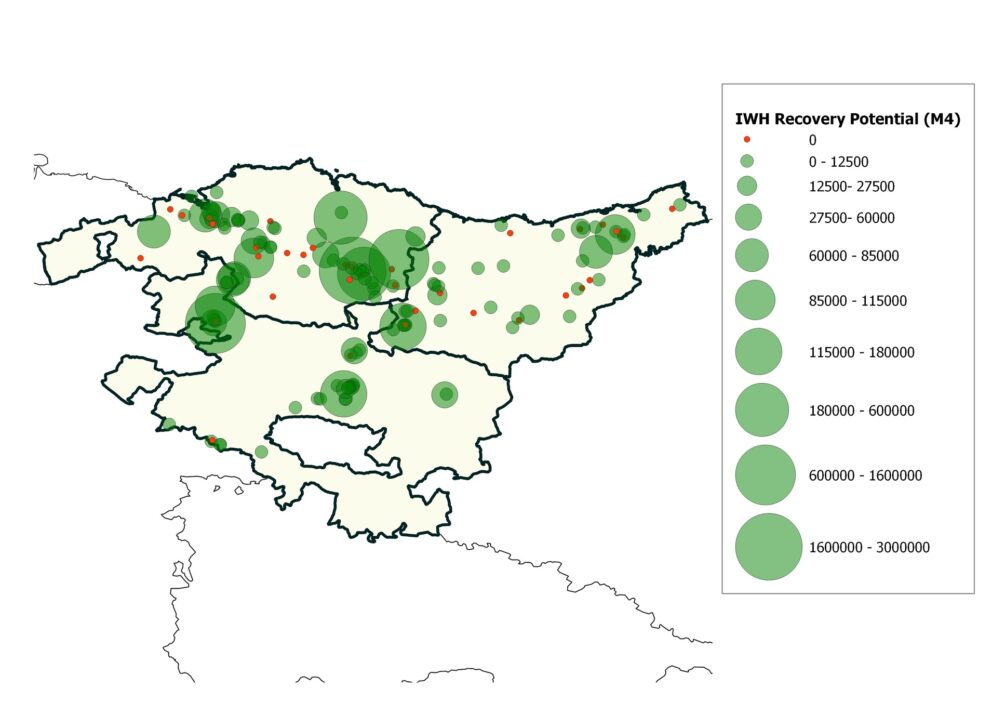| The ENEDI research group of the UPV/EHU has made an estimate of the industrial waste heat that could be used and reused in the industry of the Basque Country. It has been found that, for residual heat flows above 400 °C, more than 90% of the companies studied have payback periods of less than five years for investments in the recovery of this heat that is usually wasted. |
| Industrial waste heat recovery shows significant potential for increasing energy efficiency in industry. However, to design strategies that exploit this potential, it is necessary to have data about the quantity and characteristics of industrial waste heat flows. This information is not always readily available and many companies do not even have a systematic record of these energy flows. Hence, bottom-up methodologies to estimate that recovery potential by means of key transfer figures are useful tools within this field. In the present article, four different methods are applied to determine the industrial waste heat recovery potential in the Autonomous Community of the Basque Country (northern Spain), an energy intensive industrial region with large energy dependency from the outside.
Besides, the analysis of the economic viability of the industrial waste heat recovery is essential, because it determines the final adoption of energy efficiency measures. For that aim, the authors develop an easy to-apply bottom-up methodology to carry out an assessment for the economic potential of the estimated industrial waste heat at different temperature levels. This method is applied to 129 companies, whose potentials are characterized and discussed. The obtained results show that, for waste heat streams above 400°C, more than 90% of the studied companies present payback periods below five years. For those industries with waste heat temperatures below 200°C, the ratio decreases to around 40%, still a noticeable value. The estimations show a significant opportunity to implement solutions to recover this wasted energy, especially in the iron and steel sector and the petrochemical industry. The development of public policies that encourage these measurements would be also beneficial. |

